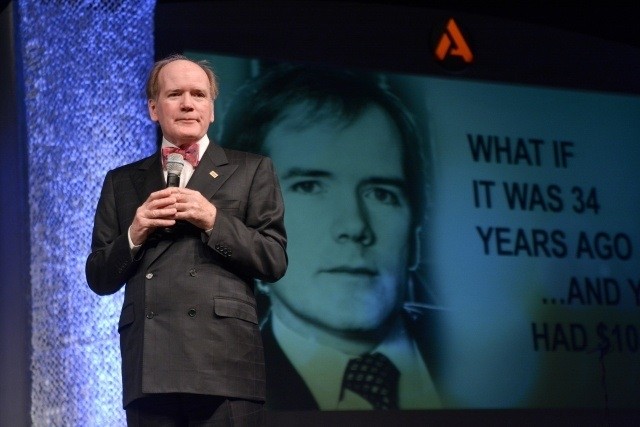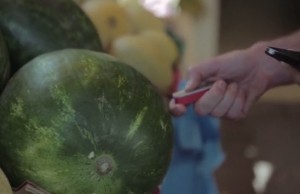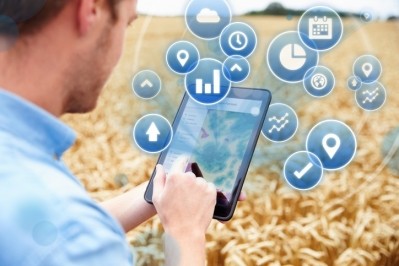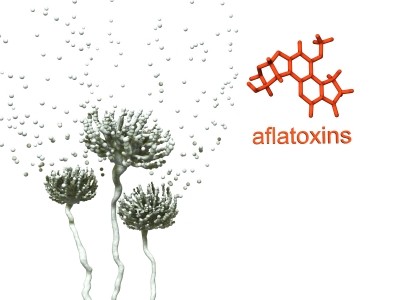The Alltech Symposium
Drones, sensors, and the hive-mind: How technology could drive a new agricultural revolution

David Hunt, managing director of Comex McKinnon and a member of the advisory board of Singularity University, told attendees at the Alltech 30th Symposium that agri-drones devoted to precision agriculture can make current agricultural process more efficient.
“About $150 billion are spent on fertilizers globally,” he said, “but the plant only uses 15-20% of this. Drones and technology can close the fertilizer inefficiency loop. Same could be said for water, and so on.
“Machines will empower farmers, and give them more information and control over their farms than they have ever had. Machines are not the end of the farmer, they are the beginning of a new type of farmer.”
Animal health
Another area where technology could have significant impacts is on mycotoxin management, said Nick Adams, global sales director, Mycotoxin Management Team at Alltech. Mycotoxins have a direct impact on animal health, particularly the gastrointestinal health of the animal by ‘chopping down’ the villi in the intestine leading to lower nutrient absorption and less efficiency.
Indeed, a paper published in Poultry Science (2011, Vol. 90, pp.1934-40) indicated that mycotoxins reduced animal performance. Feed intake was 12% less, said the paper, while weight gain was reduced by 14%, and the final body weight was reduced by 14% in broilers.
Additional data from a trial with nursery pigs found that mycotoxins were associated with animals that weighed 100 grams less, and the net return per pig was $11.50 less, said Adams.
Various systems are in place to understand the risk of mycotoxins in crop science, but there are still holes in these systems, said Adams. Technology could provide tools to close these gaps, he said.
Six big visions
The messages from Hunt and Adams echoed many of the six big visions that promise to radically change the global supply chain outlined by Dr Karl Dawson, Alltech VP and chief scientific officer of research:
• The face of agriculture is changing towards urban and vertical production
• Big data will provide new opportunities – such as new analytical tools
• New predictive models will drive precision agricultural systems
• New nutritional approaches will change the way we eat
• New standards will be used for nutritional management
• Traceability will drive the food chain and control waste
“Science and technology will continue to change the way we produce food,” said Dr Dawson. “We can now understand our livestock with the aid of molecular tools, which provide us with billions of observations while big data presents us with new opportunities.”
Sensors
While the vision of a Brave New World shimmers in the distance, Hunt cautioned that many people will be “very disappointed by what drones can do initially.
“They will improve exponentially but a lot of work needs to be done on sensors, and then we need to develop software to use the data produced from sensors.”
Disruptive technology already exists in the agri-world, he said, with companies like Israel’s Consumer Physics, Inc.’s raising financing on KickStarter to produce SCiO, the world’s first molecular sensor that fits in the palm of your hand. The device is a tiny spectrometer that sends relevant information about the chemical make-up of just about anything directly to a smartphone.
The hive-mind
Technology will bring advances in other areas of plant science and agriculture, he said, with DNA sequencing predicted to be effectively costless by 2020, which has implications for nutrigenomics, and efficacy and efficacy rates.
Data sharing across the globe will also boost agriculture, with the advent of the hive-mind agronomist.
Significantly, precision agriculture also has the potential to end the chemical ag system, said Hunt, which was invented to simplify agriculture for factory scale production with low labor.
“With drones, why would we need pesticides?” he asked. “Drones could target the pests directly and recycle the insects into fertilizer and/or animal feed.” The same could apply to herbicides, he said, with robots removing weeds. “A combination of drones and data may eradicate these things.”
Revolutions…
All of this talk of revolutions tied in conveniently with the winner of the Alltech Medal of Excellence, which went to Dr Norman Borlaug, who was posthumously honored for the green revolution. The award was accepted by his grand-daughter, Dr Julie Borlaug Larson, associate director for external relations of the Normal E. Borlaug Institute for International Agriculture.
Founded by Dr. Pearse Lyons in 1980, Kentucky-based Alltech - which now generates revenues of almost $1 billion - is an expert in yeast fermentation and enzyme technology, and says it is on track to reach its revenue target of $4bn by 2016.

















